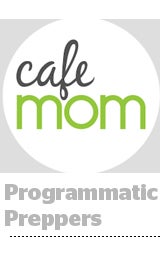 CafeMom has long seen programmatic sailing along the horizon.
CafeMom has long seen programmatic sailing along the horizon.
“Over the past few years, we saw the programmatic boat coming, and have been trying to figure out what to do,” said Paul Bannister, EVP of CafeMom, which includes mom-oriented sites The Stir and MamásLatinas.
Now, the ship is in port. Programmatic revenue is growing significantly faster than direct sales. It now accounts for 20% of CafeMom’s total advertising revenue.
The bulk of CafeMom’s advertising business still comes from direct sales, which often include elements like tailored content or word-of-mouth programs for CPG brands.
CafeMom is figuring out how to transfer that specialty in custom and premium to programmatic. It’s doing that through private marketplaces (PMP) and by leveraging its in-house data-management platform, Athena.
“We knew that private marketplaces were getting bigger,” Bannister said. “We knew programmatic was very direct-response and remnant oriented, but we thought it would change rapidly to a way for brands to transact in a more automated way.”
Rubicon Project, which CafeMom used as its primary SSP, didn’t fit its private marketplace needs.
“With the way DFP (DoubleClick for Publishers) works and waterfalls, it was difficult to know when to give Rubicon an impression because we didn’t know if a PMP would bid on it or not,” Bannister said. It needed intelligence as the page was loading to match private marketplace advertisers with impressions.
It switched to Index Exchange nine months ago, which also gave the mid-tail publisher more attentive service. CafeMom runs its private marketplaces first, via an Index Exchange header tag, which has helped improve the performance and delivery of its private marketplaces.
“It’s allowed us to ramp up what we’re doing on the PMP side significantly,” Bannister said. “We are able to maximize the value of the inventory, and so far it’s been additive to our direct business.”
CafeMom is now actively sourcing more programmatic deals in the categories where it has the most success, like CPG, food and toy companies. “We’ve been trying to figure out who has programmatic budgets and who is shifting budgets to programmatic,” Bannister said.
Right now, advertiser and agency adoption of programmatic is very inconsistent. “Some have shifted massively, if not entirely; some have done nothing at all,” Bannister observed.
CafeMom hopes to make its offering more attractive by using its DMP Athena, built by a former eXelate data scientist, to bring unique data sets to the table. “We’ve been focusing on age of kids, which is rare,” Bannister said. This data point relies on inferring behavior about those around the user.
In this way, CafeMom intends for Athena to further augment an advertiser’s data. A massive food company with its own recipe website might have reams of first-party data. But it will also have blind spots since not everyone visits those sites.
“It’s finding the right place in the middle of their data and our data,” Bannister said. “Rather than relying on their data and their view of the world, the more advanced ones know we both have things to bring to the table. “
Although buyer and seller may have strategic discussions about data in creating a private marketplace, Bannister voiced a common complaint about running a private marketplace – a lack of visibility and transparency.
“Some days we’ll see three of them that are doing great, and the next day it’s shut down,” Bannister said. Usually, it’s because a campaign ended, and the planners are too busy to communicate flight dates – a given in direct buys.
But CafeMom has done well with private marketplaces in part because of a “massive effort” over the past 18 months to ensure high viewability of ad placements, Bannister said. Private marketplace buyers tend to be savvy programmatic trading desks. “Even if they’re not buying on viewability, it’s a key metric to them,” he said.
“We monitor every placement on the site and have people on the time who watch nothing but that,” Bannister said. “Because we’re so good at viewability, it’s allowed us to tap into budgets and CPMs that are equivalent to direct deals.”
CafeMom has about 20 private marketplace deals running at any given time, with a quarter of those deals spending in substantial volumes. Those deals require just as much management and KPI monitoring as direct deals. The company employs two people who manage programmatic deals and performance.
Two others on the team accompany salespeople on calls to answer programmatic questions.
“The more we talk, the team understands the runway to talk about things,” Bannister said, setting up CafeMom’s infrastructure to support buyers as they shift more of their spends to programmatic.














